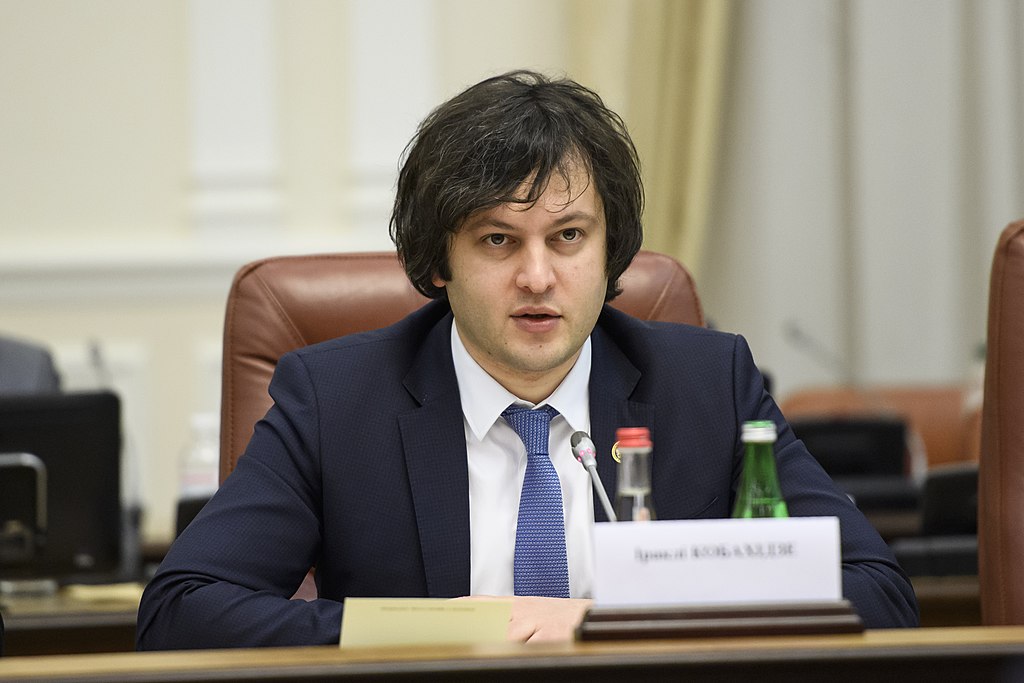The long march of the Georgian Dream
Iraklij Kobakhidze defends the appeal to the Constitutional Court to outlaw the main opposition forces and says he wants to remain at the helm of the Georgian government until 2030, ‘hoping that the approaches of the European bureaucracy will change’. The National Movement's accusations: the current administration is increasingly transforming Georgian society into a totalitarian dictatorship.
Tbilisi (AsiaNews) - Georgian Prime Minister Irakli Kobakhidze has declared that he intends to remain in power with his Georgian Dream party until at least 2030, and possibly longer.
This is not only to eliminate all internal opposition, but above all to wait for changes at the top of the European Union, trusting in a different attitude that will also allow Georgia to peacefully join an EU no longer in the hands of the ‘bureaucrats of the Deep State’.
As he explained in a lengthy conversation with journalists, the prime minister does not believe he should focus his attention on the European Commission's response, to be made public on 4 November, regarding the suspension of visa-free travel for Georgians to EU countries for failing to meet the recommendations and standards required for European integration.
He states that “our government is concerned with national interests, not European attempts to put the National Movement back in power”, the main pro-Western opposition force.
Commenting on the many sensational corruption scandals of recent times, with continuous searches and arrests of former high-level officials, Kobakhidze says that all this is merely ‘proof that our government is pursuing a fair anti-corruption policy’, promising to remain faithful to the stated goal of ‘climbing onto the podium of European countries with the lowest levels of corruption’.
Even on crucial issues of democratic rights, he remains firm in his positions ‘even if they do not coincide with the opinion of the pro-European part of society and EU partners’.
The appeal to the Constitutional Court to outlaw the main opposition forces, the National Movement, Akhal and Lelo, is considered ‘sacrosanct and necessary for the country’, even if the fact that the ‘For Georgia’ party of former Prime Minister Georgiy Gakharija was not included in this ‘blacklist’ has raised some concerns.
According to the prime minister, this group “has been spared from a legal point of view because it did not take part in the sabotage attempts and participated in parliamentary work”, even though its positions do not differ greatly from those of the other parties opposed to the Georgian Dream regime.
Western reactions to the approval of the “Russian law” against the influence of “foreign agents” are, according to the prime minister, ‘proof of the failure of Brussels' plans to guide Georgia's politics from the outside’, while the law ensures the ‘transparency of the revolution’ that the National Movement, still inspired by former president Mikhail Saakashvili, who has been in prison for almost five years now, intended to achieve.
For this reason, the government “is waiting for 2030, hoping that the approaches of the European bureaucracy will change”, and then it will be “useful and important for Georgia to join the Union”. Any possibility of early elections, as demanded by the street protests led by former President Salome Zurabishvili, has been denied: “the vote will take place in October 2028”.
The secretary of Georgian Dream and mayor of Tbilisi, former footballer Kakha Kaladze, said in recent days that his party is confident of victory not only in 2028, but also in 2032, supporting the government's intentions to draw up a “strategic development plan until 2035”.
According to the opposition, the current administration is increasingly transforming Georgian society into a totalitarian dictatorship, and one of the leaders of the National Movement, Anna Tsitlidze, assures that ‘we are ready to accept the challenge and fight to the end, regardless of the decisions of the Constitutional Court, which can smoke them in their pipes’.
Calls are being renewed for the EU to impose sanctions on the ruling party and in particular on its founder and leader, the oligarch Bidzina Ivanishvili, because only pressure from the whole of Europe can force those in power to ‘not submit completely to Putin's Russia’.







.png)










